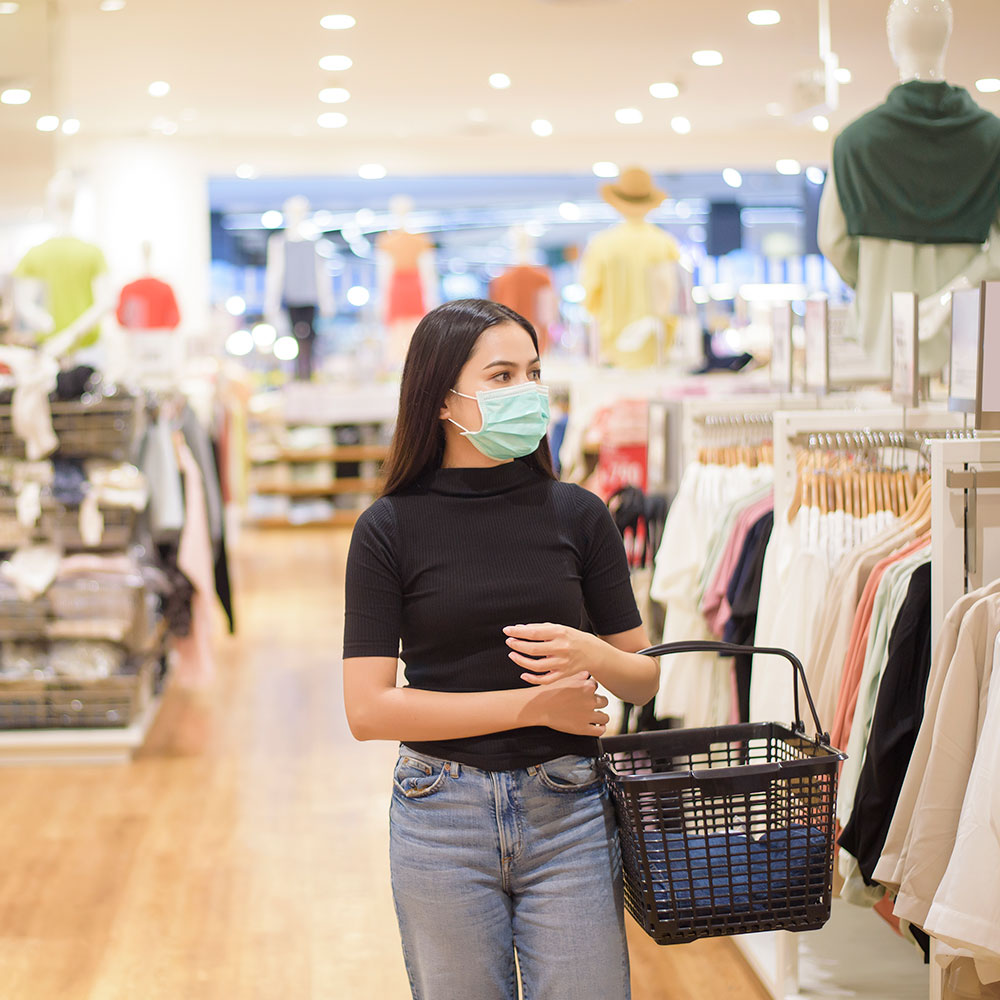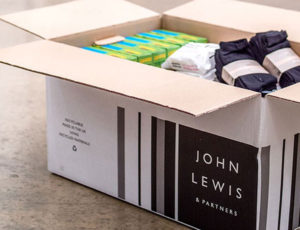
Gavin Matthews and Nicky Strong of law firm Womble Bond Dickinson discuss the compulsory wearing of face coverings in shops.
While the government’s announcement on Tuesday 14 July was not a complete surprise, the lack of a properly thought through plan behind the move to compulsory wearing of face coverings in stores and supermarkets is causing some consternation amongst retailers and consumers alike.
In his oral statement to Parliament on 14 July, Matt Hancock’s explanation was simply to say that the new rules would provide “people with additional protection when they are not able to keep 2 metres from others, particularly people they do not normally come into contact with”. Also, to keep store staff safe and increase public confidence when shopping.
As non-essential retail stores have been open since 15 June, it seems a little tardy to introduce such measures now; some six weeks after stores re-opened and with the continuing drop in the number of new infections of Covid-19. The driving force seems to be the desire to increase footfall into stores by increasing public confidence. This of course is very welcome but brings with it its own problems for retailers.
Mr Hancock emphasises the responsibility for wearing a face covering lies with individual consumers and fortunately not with retailers. Nevertheless, he states that if a non-exempt individual refuses to wear a face covering, the retailer can refuse entry. They can also call the police if necessary; the police have formal enforcement powers to fine those not complying.
Face masks have been controversial since the start of the pandemic.
In some countries, like the US, they have become somewhat politicised. The biggest challenge for retailers will be on how far they should go in trying to enforce the rules. With police involvement as a last resort, retailers will need to call on public support for these measures. Therefore avoiding their staff becoming embroiled in potentially confrontational situations and straining customer relationships at a time when all efforts are being made to recover the time and consumer spend lost during shutdown.
Pending the appropriate legislation, the latest Guidance published on 14 July merely states:
“In England, you must by law wear a face covering in the following settings: Public Transport; Shops and Supermarkets as of 24 July 2020.
“Measures can be taken if people do not comply with this law. Transport operators can deny service or direct someone to wear a face covering. If necessary, the police and Transport for London authorised officers can issue fines of £100 (halving to £50 if paid within 14 days).
“Shops and supermarkets will be expected to encourage compliance with the law (as they would do more generally) and can refuse entry. In both cases, if necessary, the police have the powers to enforce these measures, including through issuing a fine of £100 (halving to £50 if paid within 14 days).
“You are also strongly encouraged to wear a face covering in other enclosed public spaces where social distancing may be difficult and where you come into contact with people you do not normally meet.”
This guidance does not address the point that face coverings are not mandatory in restaurants, cafes and bars, for example; where social distancing may well be less than 2 metres. And, where people are likely to be in one place for far longer than they would walking around a store. Also, it is not compulsory for store staff to wear face coverings. However, the guidance does state that employers should consider recommending their use where appropriate.
The police reaction to this has been more than a little muted.
They seem to be as surprised as the rest of us. The result has been confusion over where the responsibility for enforcement will lie. The police view is that it would be almost impossible to enforce, with the front-line burden being on retailers themselves. This calls into question difficult issues for store managers and staff; not least what they can and cannot do if a customer refuses. Or how confrontational they should be, and when they should call the police in to deal with the situation.
The British Retail Consortium (BRC) has made its position clear. Retailers will of course communicate the rules to customers, but there should be no expectation for retailers to enforce them. Especially given the potential for conflict and disgruntled customers venting their feelings at staff.
The medical evidence on the issue of non-medical face coverings remains ambiguous.
The World Health Organisation’s (WHO) latest publicly available information states; “Non-medical, fabric masks are being used by many people in public areas, but there has been limited evidence on their effectiveness and WHO does not recommend their widespread use among the public for control of Covid-19.
“However, for areas of widespread transmission, with limited capacity for implementing control measures and especially in settings where physical distancing of at least 1 metre is not possible – such as on public transport, in shops or other confined or crowded environments – WHO advises governments to encourage the general public to use non-medical, fabric masks.”
This lack of clear evidence and direction is also apparent from the different stances from the English position by the devolved administrations.
Northern Ireland has not made face coverings mandatory except on public transport. It does, however, strongly advise people to wear them when spending short periods in enclosed spaces where social distancing is not possible.
Similarly, in Wales, the government is advising the use of three-layer face coverings where 2 metre-distancing is not possible. That advice repeats the fact that the clear evidence is that the most effective protective methods are to follow social distancing; avoid touching surfaces and your face and to wash hands regularly. It also cautions that face coverings may lull people into a false sense of security. This may mean they pay less attention to those most effective measures.
However, the Scottish government has taken a harder line.
It is making it mandatory to wear face coverings in shops, on public transport and public transport premises, e.g. railway platforms. The definition of shops is “any indoor establishment offering goods and services for sale or hire”. It therefore includes libraries and DVD-rental premises.
Like England, it does not include hospitality premises such as cafes, coffee shops, restaurants or pubs, but also excludes money services businesses including banks and building societies. The reasons for this last exclusion are not immediately apparent.
Taken as a whole, the issue of compulsory wearing of face coverings in retail premises is challenging.
Not least because of the lack of concrete scientific data on their effectiveness; reflected in the somewhat non-committal advice from the WHO. This, coupled with the lack of practical guidance on enforcement, is undoubtedly going to burden retailers with an additional headache over the coming weeks and months.
Retailers should carefully consider what support and guidance to give to their staff in advance of 24 July. Therefore helping mitigate the risk of employees becoming involved in conflict that they may find difficult to extricate themselves from.

Nicky Strong & Gavin Matthews












